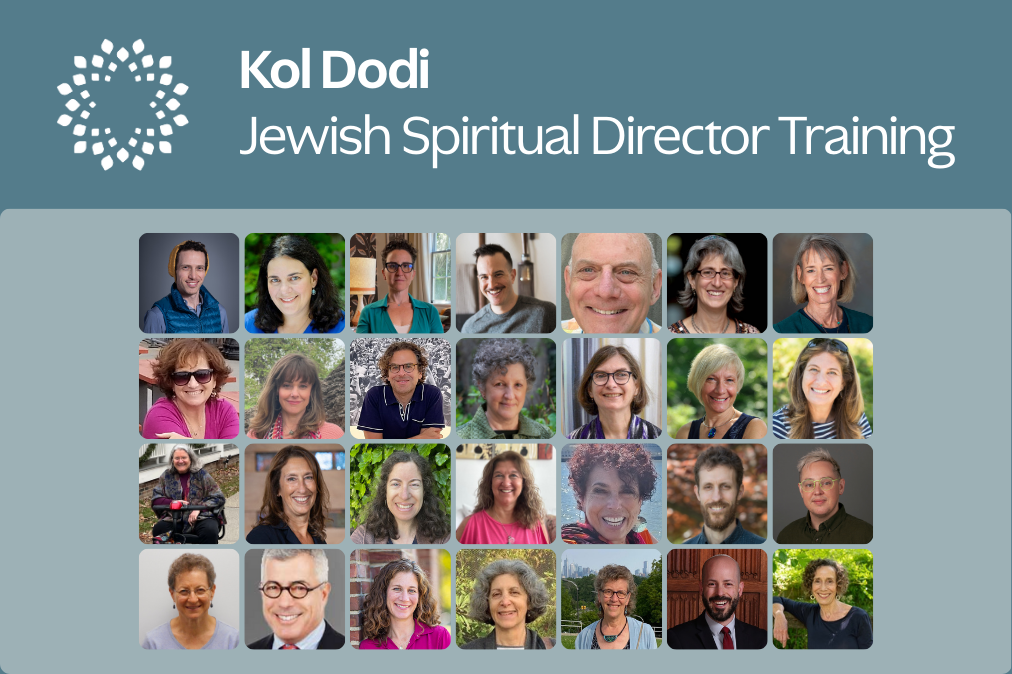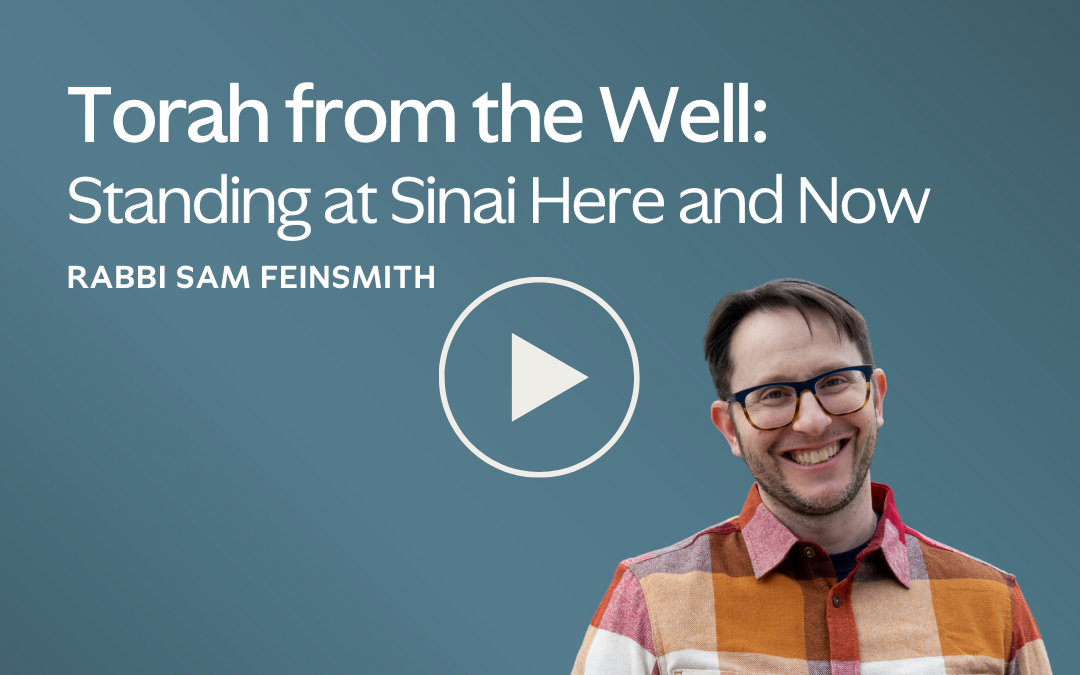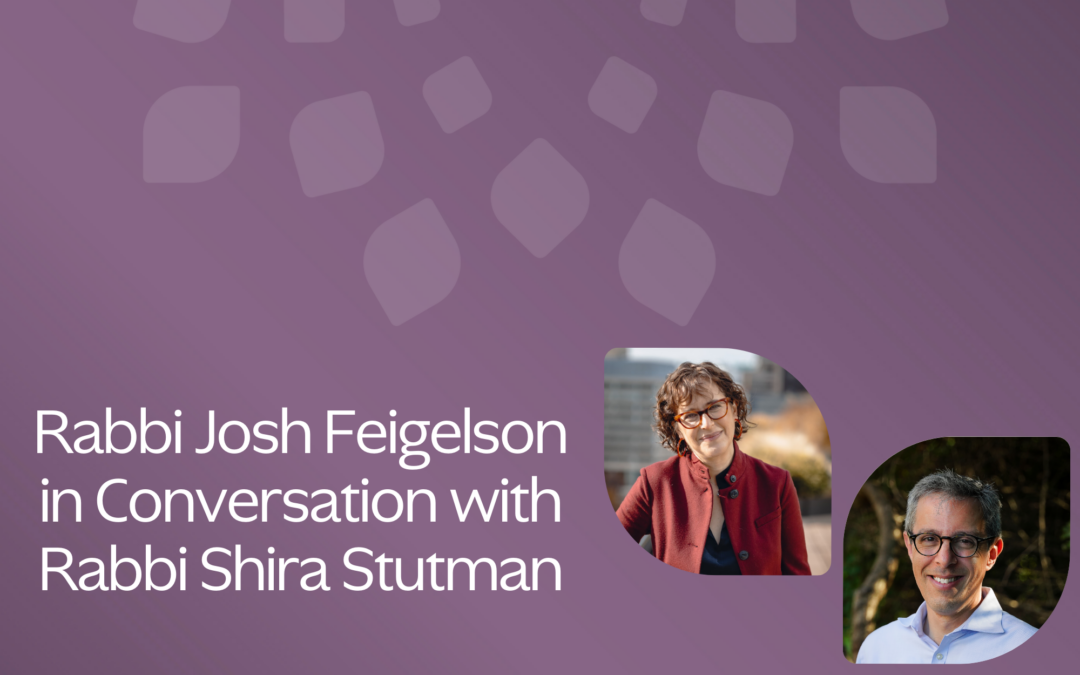
First Cohort of 28 Spiritual Directors Graduate from Kol Dodi
In a famous Hasidic saying, the Kotzker Rebbe was once asked: “Where does God dwell?” to which he replied, “Wherever you let God in.” Spiritual direction is the practice of letting God in, of noticing the sacred thread woven throughout everyday life.
Spiritual direction is a contemplative practice that invites one to grow in awareness of the sacred dimension present in every moment, no matter how mundane. In this practice, we assume that we all have a spiritual dimension and a need for meaning-making, whether or not we believe in God.
Spiritual directors act as companions on this journey, holding space for seekers to connect with their spiritual longing, discover and explore their inner wisdom, and strengthen their attunement to the sacred. Spiritual directors are not therapists, but trained guides who meet monthly with seekers to support their journey toward spiritual growth and wholeness.
In the fall of 2023, IJS launched Kol Dodi: Jewish Spiritual Director Training Program under the leadership of Rabbi Myriam Klotz. Kol Dodi is grounded in IJS’s contemplative and contemporary core spiritual practices for cultivating awareness of mind, body and heart, and for attuning to the Kol Dodi, which means “voice of the beloved.”
Recently, we celebrated 28 graduates of the 18 month spiritual direction training program. Current Program Director, Rabbi Elisa Goldberg notes that: “Many participants came to the program with significant professional accomplishments and commitment to their own personal practice. It was a blessing to work with individuals on such profound spiritual journeys and to know that they will be sharing their gifts with others.” Among the participants in the first cohort of Kol Dodi were rabbis, cantors, therapists, wellness practitioners, lawyers, doctors, chaplains, and Jewish communal professionals.
Spiritual directors offer seekers opportunities to pause in the midst of our busy lives to focus on the still small voice within. Meeting regularly with a spiritual director over time can help one to live a richer, more authentic life aligned with their deepest values, to cultivate compassion and resilience, and to develop spiritual tools to face life’s inevitable challenges. The practice of spiritual direction helps one to connect to life’s mystery, explore our deep interconnection with life’s mysteries, and deepen one’s unique experience of faith.
Kol Dodi provides opportunities to grow both personally and professionally. As one recent graduate of the program noted: “The Kol Dodi program has renewed my vocation as a spiritual caregiver and given me a greater appreciation of all that I have to offer… If only my work life had changed as a result of this program, dayenu. I’ve also been blessed to find great joy and purpose in offering spiritual direction to others. I’ve discovered what a life giving gift spiritual direction is, how simple the premise and yet so profound the results.”
Want to get involved? Looking to nourish your soul?
The individuals listed here have completed Kol Dodi: Jewish Spiritual Director Training Program and are available to provide direction to individuals. Please contact anyone on the list to schedule a free 30-minute introductory session to see if Spiritual Direction is for you.
The next cohort of IJS’s Kol Dodi: Spiritual Director Training Program will begin in fall of 2026. If you are interested in finding out more about the training program, please contact Rabbi Elisa Goldberg, Program Director at elisag@jewishspirituality.org
In the fall of 2025, we will be offering a Taste of Spiritual Direction and an opportunity to participate in time limited Spiritual Direction Groups. Sign up to be notified when registration opens.





